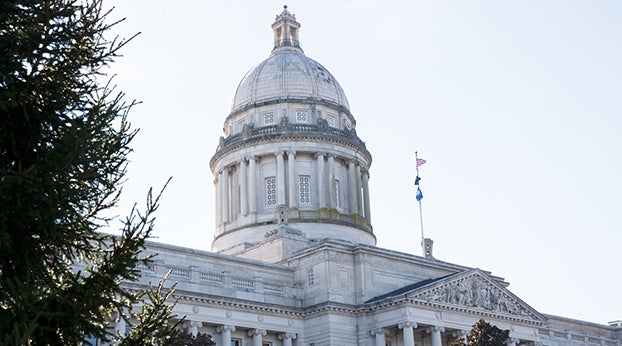Who won or lost in Supreme Court’s cake-baking case?
Published 6:06 am Thursday, June 21, 2018
By ERIC MOUNT
Contributing columnist
The Supreme Court’s recent decision concerning the refusal of Colorado baker Jack Phillips to create a wedding cake for a same-sex couple due to his religious convictions has left a lot of people wondering.
There have been celebrations and consternations on both sides of the contested issues, and Justice Kennedy’s majority decision would suggest that the issues in question must await final settlement in future cases. Why the confusion? What is probably ahead?
In brief, the Colorado Civil Rights Commission and then the Colorado Court of Appeals ruled that Phillips’ repeated refusal violated Colorado’s Anti-Discrimination Act. The U.S. Supreme Court decided otherwise. It did not do so in defense of a right to discriminate because of religious beliefs or in support of cake-baking as an act of free speech.
Rather, it ruled in Phillips’ favor because the language used by one of the Colorado commission members disparaged religion in general and the religion of Phillips in particular. Referring to past instances of using religion to justify various kinds of discrimination, the wording had called religion “one of the most despicable pieces of rhetoric that people can use.”
Justice Kennedy’s majority opinion, while rejecting this violation of “neutral and respectful consideration” of religion, made it clear that the right not to be discriminated against in gaining access to goods and services in the marketplace is not rejected by this decision. In his words, “It is a general rule that (religious and philosophical) objections do not allow business owners and other actors in the economy and society to deny protected persons access to goods and services under (anti-discrimination) law.”
That rule did not solve the case in question because of hostility expressed toward any role of religion in the marketplace. A similar case without the disparaging statement about religion would be decided on different grounds.
In reflecting on these pages about what we might expect in the adjudication of similar cases in the future, Lata Nott, executive director of the First Amendment Center, reports early results from the 2018 State of the First Amendment Survey. About 54.5 percent of Americans disagree that Phillips’ Masterpiece Cakeshop should have a legal obligation to bake a wedding cake for a same-sex couple if the issue is framed as a freedom of religion issue rather than a freedom of speech issue. About 42 percent would support such an obligation.
If people are inclined to infer from these numbers that the tide is flowing in this cake baker’s direction, they should consider another recent survey. A report of the Public Religion Research Institute finds a growing acceptance of same-sex marriage among conservative Christian groups (the very constituencies most invested in protecting the religious freedom of bakers). Comparing or contrasting levels of support in 2013 to those in 2017, the survey found the following decreases in opposition to (or growing acceptance of) same-sex marriage:
• Among white evangelical protestants, opposition dropped from 71 to 58 percent.
• Among Mormons, it dropped from 68 to 53 percent.
• Among Hispanic protestants, it dropped from 65 to 45 percent.
• Among Black protestants, it dropped from 57 to 43 percent.
If we add to this four-year shift the fact that the Supreme Court has ruled in favor of the legality of same-sex marriage, we can understand why one column headline last week read, “Actually, the baker in ruling lost, here’s why.”
The nine communities in Kentucky — including Danville — that have fairness ordinances should feel encouraged.
Eric Mount is the Nelson D. and Mary McDowell Rodes Professor Emeritus of Religion at Centre College.






